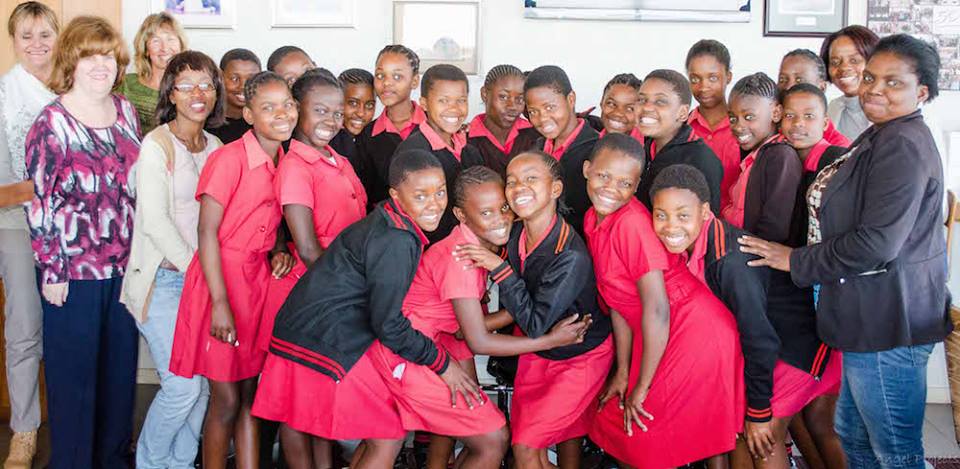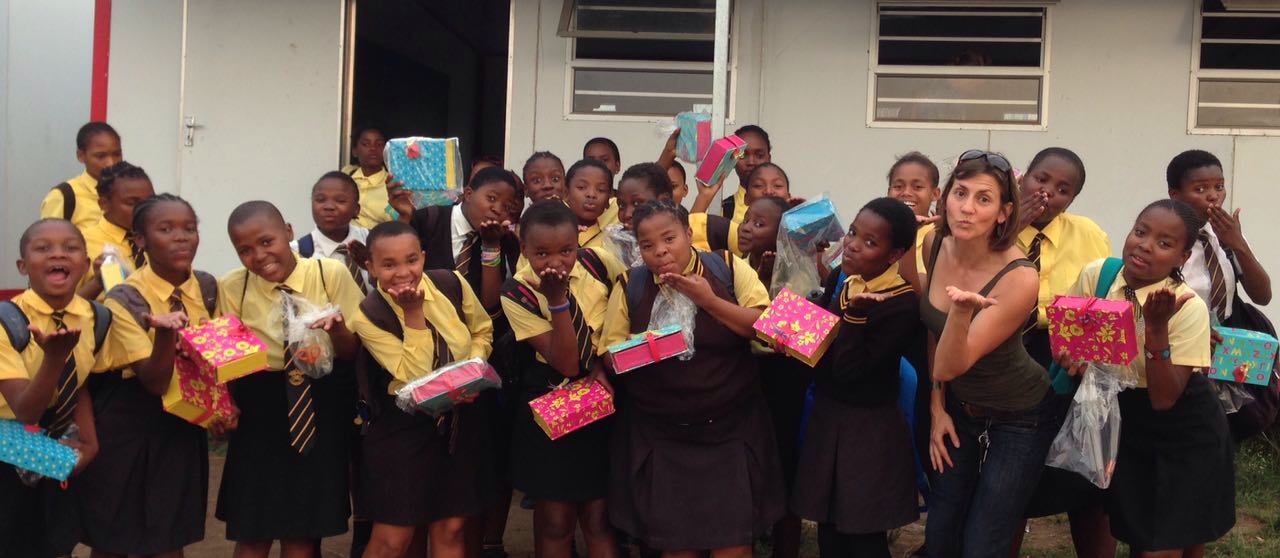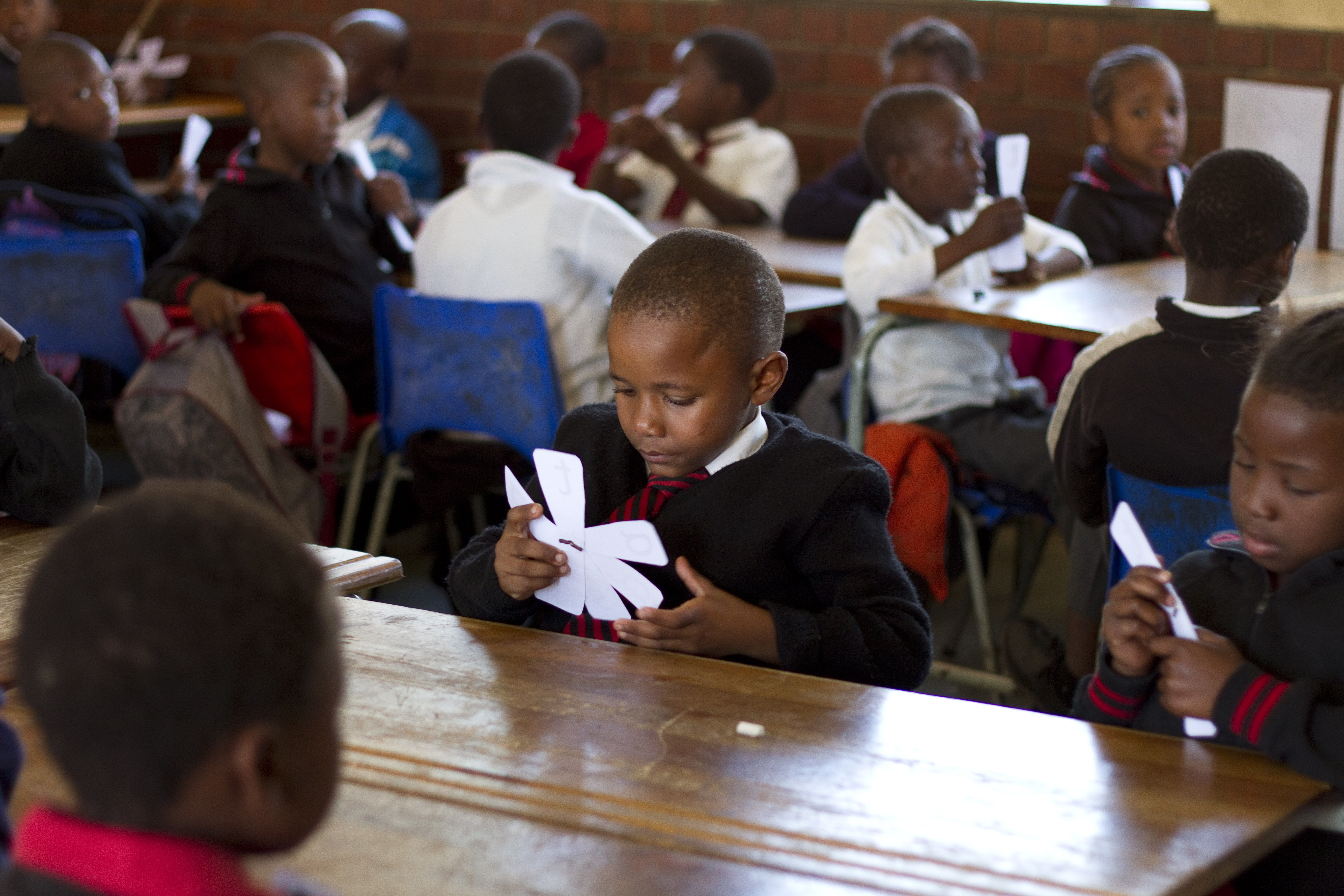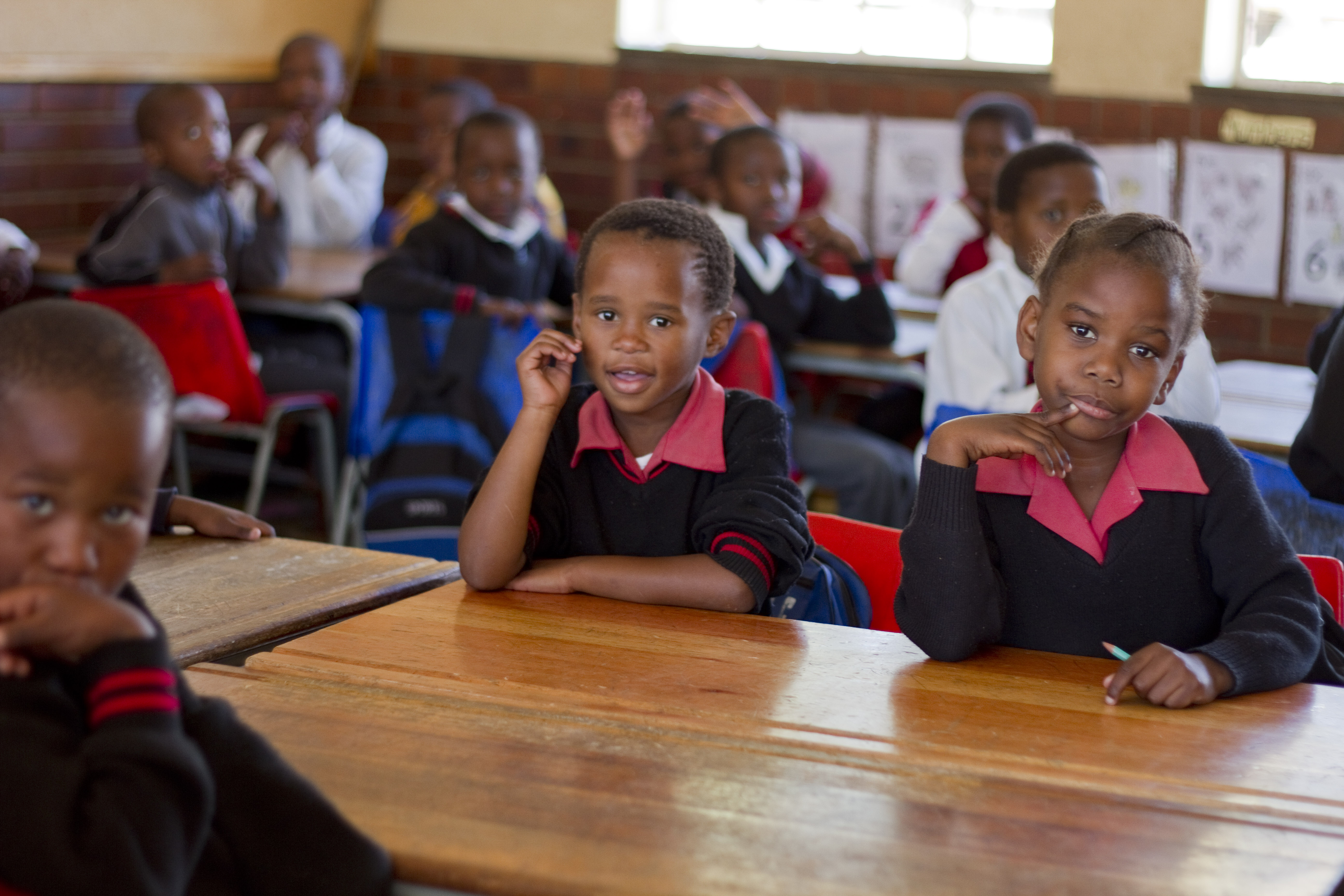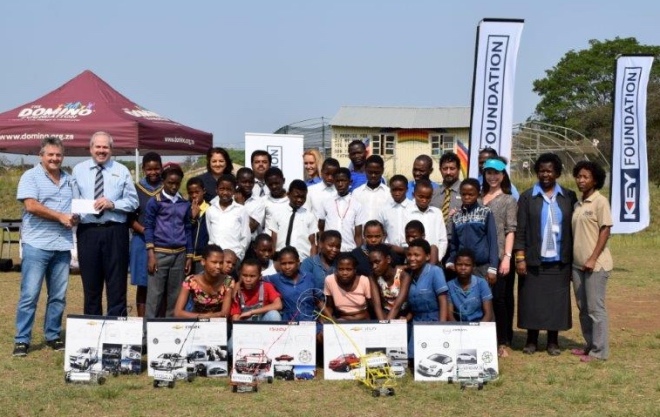Annelize Muller shares her journey of volunteering at an NPO and the valuable nuggets of wisdom she’s learned along the way.

Enlightening. That’s the word that comes to mind when I tell you about my last 5 months. I’m a Product Development Manager at a big corporate and have been in the corporate environment for the past 11 years. A seed was planted in my heart a few years ago of giving back to our South African community, to do something more, be part of the change, share, learn and really understand our people, especially those who are not as privileged as I am. Although in saying privileged I sometimes feel that our poorer communities are much richer in true life value than what we could ever be in our individualised world’s, big offices, nice running cars and comfortable houses.
My company graciously approved my request for a 7 month sabbatical to go and learn about the needs of our communities, understand how a NPO works, how corporate and non-profits can hold hands to create a brighter future and to revive my soul so I can come back and be the best leader I can be.
So I share my 10 lightbulb moments I had in the hope that someone can either learn from them or be able to share their own lightbulb moments that will make for a better South Africa today.
Lightbulb #1: The REAL need vs YOUR need to give:
For anyone who knows Maslow’s Hierarchy, he hit the nail on the head. Our poorer communities’ needs are really really basic. Food and security (safety of a home) are what they need and once that need is consistently filled it will release them to start thinking about things such as education, working etc.
But often we give on the level we’re sitting on. For example, when I joined the Life Skills Girls Club team, where I helped facilitate extra-mural activities for teenage girls, I first organised pilates classes. This was an epic fail because it was not aligned with the REAL need but only with my own.
To put it more in perspective, have you ever had a day at school or work without food? Or calculated a maths sum on an empty stomach?
Lightbulb #2: It can’t be about pity or charity, it’s got to be a win-win
In no way is this point supposed to make you feel guilty for having a nice car and a comfortable house. I have got mine.
My question is, what are the factors that got you where you are today? A good education? Books to read? Parents that were happy to talk about the birds and the bees? If you think back about the little things you take for granted that made you a success, I believe those are the small things that YOU can give to the others if you want to see our whole country succeed. And in doing so you might just learn something mind blowing in return…..
Lightbulb #3: Our country is full of potential – harvest it!
At The Domino Foundation’s AGM we had the privilege of listening to 6 youngsters who came through our life skills programme in Gr4 -7 and who are now in their final year of school. I was totally overwhelmed with their hard work ethic, what beautiful leadership quality they displayed and how much they attributed their success to the Life Skills programme. We have endless amounts of talent in our country that just doesn’t have the opportunity to be nurtured or receive guidance from an adult. It’s unforgivable that we let these beautiful people slip through the cracks
Lightbulb #4: Sustained input = sustained output
Just like your car needs to be continuously filled up with fuel to run at its optimum, it’s very much the same with us as human beings. We need consistent input, environment and care for us to really flourish. The talent I spoke about above has been really guided and molded by our youth workers Jomo, Sifiso, Nonte and Thobile, who are amazing, committed and big-hearted individuals. They’re in these kids lives every single week, having conversations with them on a big brother/sister basis and building trust and the type of relationships that change lives. The once a month visit I made to the school cannot come close to the change these young people are making through continually investing their time and energy.
Sustained input really gives visible sustained output.
Lightbulb #5: Domino has well trained, capable and experienced staff – so empower them with resources to succeed
For a very long time I’ve been living in my ignorant bubble that success (at a corporate) means that the value I add everywhere is equal. For example, that any NPO would need my skills to succeed. This is NOT TRUE! I was so pleasantly enlightened when I started working at Domino to see that they have all the right skills for the job, are just as committed and skilled as any corporate animal, but with a different purpose in mind. So if we have the right people in place we should really just give them the resources to execute their purpose exceptionally well.
How can we expect them to feed the hungry, educate our country’s kids and care for the needy if we don’t give them the resource to do it? I always thought that just donating money was an easy way out but now I see it (the donation) as an enabler for nonprofits to make the change we don’t have the time or skills to make. ( Lightbulb #4: sustained input = sustained output)
Lightbulb #6: Cost and value are not directly related
This phrase has been floating around for the last few months at The Domino Foundation, about how the price of something simply can’t be equated to what value it brings. For example, one 5 minute conversation (at no Cost to you) can lead to a donation of 100kg’s of soap powder which has a value of 4 months’ worth of clean linen and clothes for our babies in our Babies home.
Or, one 30 second conversation and a person in my network spreading the word (at no cost you or them) can lead to 4 brand new single beds to help out 4 families in need after the floods, which has a value of keeping them off sleeping on a cold damp floor so that they’re able to go to work every day.
So what it costs us to just have conversations and spot opportunities can NEVER translate into the value it can bring to someone else in need. The cost is small but the value is HUGE!
Lightbulb #7: People want to help so give them the opportunity to do so
I’ve been amazed at how gracious all my colleagues at work and my friends have been and how they’ve all given in their own way. Whether it is funding for one of our Girls’ Club sessions or coming to help at Amaoti and pushing aside fears of going into unfamiliar territory – I’ve not once had to beg for the support. Sometimes people just need the opportunity and the giving just overflows.
Lightbulb #8: People need leadership to give sustainably and in the right way.
If the giving is so easy for people then why does it not happen all the time? I now realise that just like anything else, like a personal trainer at gym or a leader of the mom’s group, you still need someone to take up the reigns, give direction and impart knowledge to make sure we give continuously and in the right way. This doesn’t take a huge amount of leadership, skill or cost – just a bit of time, some guts to ask questions and the desire to make a difference. The reward is immeasurable. (See Lightbulb #6: Cost vs Value)
Lightbulb #9: Be connected on both ends
Spending time at Domino was completely different than I originally imagined. I thought I would be out in the field grinding it out but I ended up spending more time in the office sitting in the middle of the NPO cog and listening to conversations and sometimes adding my 2 cents. Hearing the needs inside Domino and being able to respond to relevant opportunities outside Domino to immediately fill their needs helped me understand the organisation so much more. When you have a foot in both worlds magic truly happens. Gold comes from conversations and it’s turned into uplifted lives.
Lightbulb #10: Purpose = drive, motivation, energy, determination, guts & tenacity, which leads to LIFE
I honestly didn’t think I would be going back to my corporate job but I have a new purpose in mind, a new understanding of what opportunity sits within corporate to support NGOs and a salary which can be used to fund and empower these amazing people and the value it can bring to uplift others. I can’t wait to have more conversations, inspire others to think just one step further with what they have, see how corporate can truly support NPO and be a part of a team that I can be proud to say cares about the world and its people.
Here’s to a lifetime of creating brighter futures!







